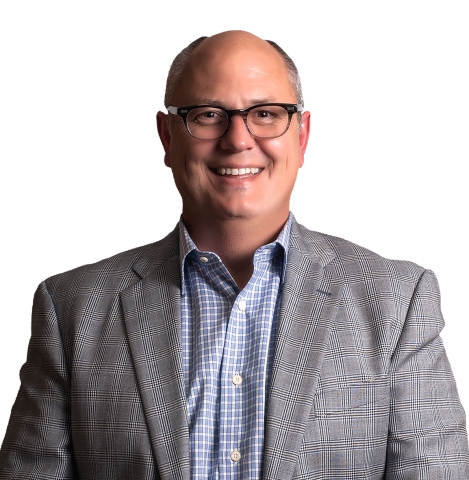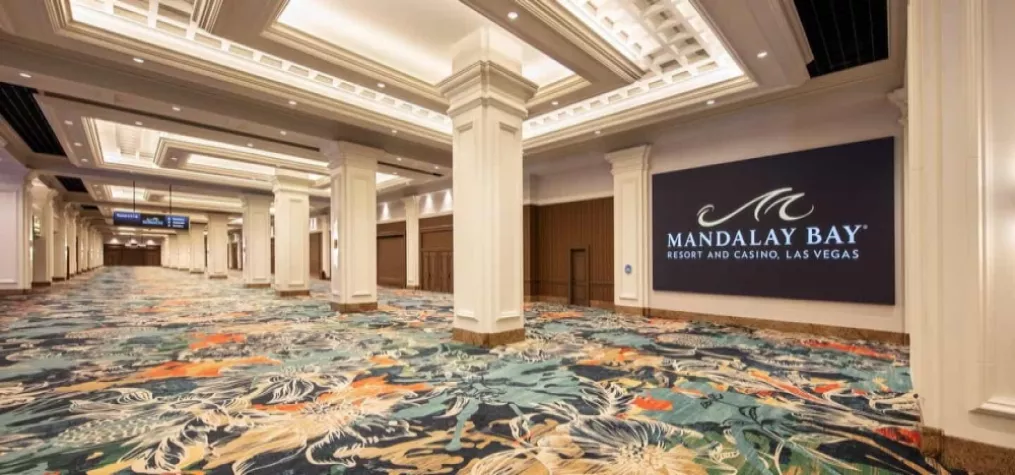Trade Show Leader: Freeman’s Bob Priest-Heck

Freeman President and COO Bob Priest-Heck was in the right place during the right time to ride the new wave in the digital technology community in publishing when he joined the Seybold Seminars organization early on in his career.
Prior to his current role at Freeman, he also served as executive vice president and chief sales officer. Before joining Freeman, he was president and CEO of Wheelhouse Solutions, the parent organization to Champion Exposition Services, George Fern Company and Immersa Marketing, which were acquired by Freeman in June 2011 (Fern was only briefly part of Freeman before being divested and becoming an independent company).
Before joining Wheelhouse, he was president and CEO of MediaLive International Inc., working with such media brands as Interop, Business Communications Review Magazine, COMDEX, Seybold Seminars and Publishing and Web 2.0. He was vice president, International Operations for Softbank Expos, and executive vice president of Operations for Ziff-Davis and held various positions with Hyatt Hotels Corporation.
An active leader in the experience marketing industry, Priest-Heck currently is a board member for the Center for Exhibition Industry Research (CEIR) and U.S. Travel Association (USTA).
He took time out of his busy schedule to talk about what lessons he has learned along the way.
TSNN: How did you get started in the industry?
Bob Priest-Heck: Out in California, I met Jonathon Seybold, whose father was a pioneer in developing computer-based typesetting systems. Jonathon asked me to join his new Seybold Seminars organization, which held conferences and trade shows focused on the use of digital technologies in publishing. I became the 17th employee in a company working out of an old Malibu mansion next to Johnny Carson’s home. We quickly built up a portfolio of properties that attracted a Who’s Who in the nascent digital technologies community. We made it a point to be the source for all the most current, relevant information, at events such as “Digital World,” and that launched my career into the event/conference/trade show business– catering to movers and shakers in the tech industry.
TSNN: How different was the industry when you started, compared with today?
Priest-Heck: When I started, the Internet was a new thing. At that time, most people in our industry didn’t see that the Internet or digital revolution would have any impact on “our world.” I was really blessed to be in the right place at the right time. Of course now, one of the key things for any show organizer is ensuring that a facility has the connectivity and bandwidth to support everyone’s needs. We can’t imagine doing business without the web, smart phones, and the ubiquitous technology that was all new when I started out. The next chapter will include buzz words like Data, VR, AI and Machine Learning!
TSNN: What are some of the lessons you have learned being a part of this industry?
Priest-Heck: I’ve learned so many lessons, that I actually started blogging about it: (BPHConnect). Most people in my circle know I’m big on Maslow’s hierarchy of needs and how we owe each other “unconditional love.” When I was young, the people I worked with took some huge risks, and most of them (but not all of them) paid off. I was encouraged to push further. As leaders, we need to ensure we’ve met our peoples’ basic needs before we ask them to reach higher. ‘Unconditional love’ means that we need to care about the people we work with – with open ears, minds, hearts and a lot of patience. The best work relationships are ultimately those based on mutual trust. It means providing a secure, open, collaborative environment in which people feel empowered to explore, to take chances, and to imagine new worlds.
TSNN: What is your favorite part of being in the industry?
Priest-Heck: I love how this industry touches every other industry, which means we are positioned to contribute to massive change. But personally, I’m always happiest when I’m meeting one-on-one with clients, talking about what keeps them up at night, thinking about the business strategically, finding solutions, and contributing to their success. The best part of being in the face to face business – is being face to face with our customers and people.
TSNN: Anything you miss that you wish was still around?
Priest-Heck: Great clients and colleagues who have retired or moved on. And time to think. J I guess, it’s just harder to find quiet time, right? We used to have time in the car or on an airplane to just sort our brains out. Now we can be reached anywhere. I think that’s why we hear so much today about practicing “mindfulness.” You have to schedule it, be intentional, or you’ll get nibbled to death by the smart phone interruptions.
TSNN: Anything you are thrilled went away?
Priest-Heck: I hope the “old boys” club” is gone. I believe as an industry we are more progressive, more open to diversity that is welcoming to people with passion and principles that respect and value everyone. And I love that we’re eliminating so much of the material wastefulness – throwing everything into the trash – that trade shows used to engender. Freeman has led a huge sustainability effort, and our customers love it.
TSNN: What do you hope your personal impact on the industry is?
Priest-Heck: I hope that my efforts enable further innovation. I hope that people whose lives I’ve touched make brilliant breakthroughs. Right now, Freeman is putting into motion plans that will change the industry, that will enable a more personal, one-on-one type of engagement. We’re using the power of design thinking to redefine brand experiences as a powerful, rejuvenated new medium. I love being part of that movement.
TSNN: Any wise words about what this industry means to you overall?
Priest-Heck: Our industry is about nothing more than people – and I love the people that I have meet on this journey. Their resourcefulness, their dedication, it’s inspiring. Again, from a Freeman perspective, our purpose is to “connect people in meaningful ways.” Things are only meaningful when they are relevant in a personal way. Our ability to leverage digital tools and mine data will help us design more meaningful connections for our clients and their customers.
If we’ve learned anything from the Internet, it’s that the future is about letting people make their own choices and create their own universe. We can fight the disruption, or we can be the disruption.
Ultimately, our opportunity and responsibility as industry leaders is to use our talent, resources and gifts to advance society to create prosperity, learning and to elevate the human experience. There is no greater calling.


Add new comment